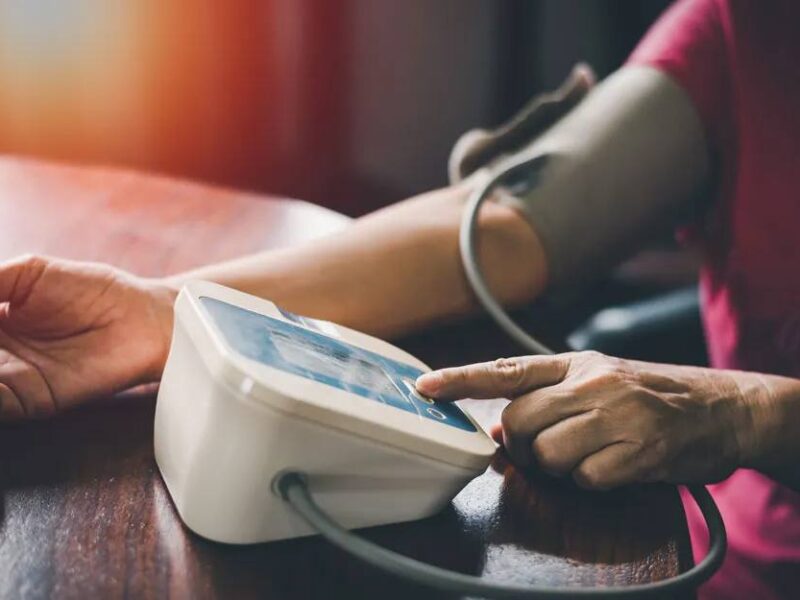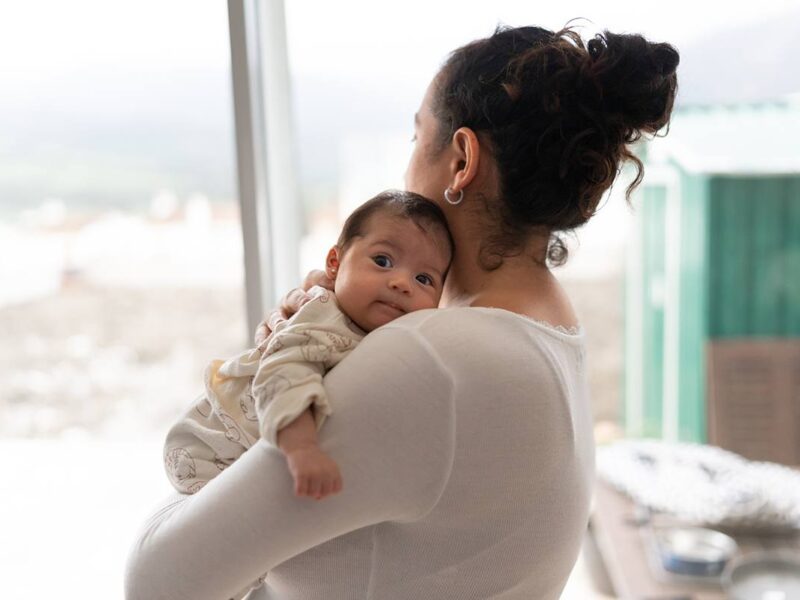At Student Health Services, The Care Continues
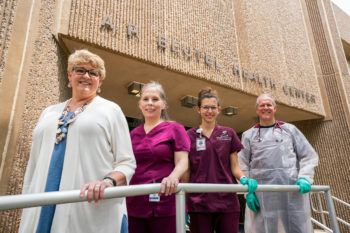
Preparing for a pandemic is routine for Student Health Services, where staff regularly monitor infectious diseases that could eventually hit the Texas A&M University campus in College Station. So when the novel coronavirus started spreading through Wuhan, China, campus health care workers were ready.
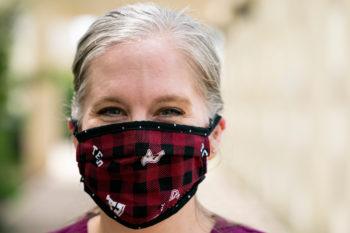
“The first time we talked about it as a group was the first staff meeting in January,” said Dr. Tiffany Skaggs, chief medical officer at the A.P. Beutel Health Center. “We started doing training on it because we knew we would have a group of Chinese students coming back from winter break, and we knew the Centers for Disease Control and Prevention had published guidelines on investigative procedures if people were from a high risk area of the world.”
By Jan. 23, the university confirmed that health officials were examining whether a graduate student who had traveled to China could have contracted COVID-19, the illness caused by the coronavirus. While that student tested negative, the situation quickly evolved at Texas A&M as the virus spread across the United States. Student Health Services has performed around 100 COVID-19 tests so far — four came back positive.
Student Health Services Director Dr. Martha Dannenbaum said a meeting to discuss the state of the virus had already been scheduled with the Task Force for Campus Emergencies, of which she is a member, but the news in January that a student was under investigation kicked the response into high gear.
Students who had traveled to and from China asked to be tested as early as January, and the campus clinic started seeing an uptick in worried students with mild symptoms after returning from Spring Break.
The university, which has the country’s largest student population, moved 57,871 students to virtual classes in late March. While the campus is now mostly empty, Student Health Services continues to serve students both in-person and virtually.
Continued Care
On an average week after Spring Break, Student Health Services would typically see between 300 and 400 patients a day. The clinic is now seeing about 25 to 30 percent of its normal volume after most students chose to leave campus for the remainder of the semester.
“We’ve backed off on doing many routine, preventive things to minimize unnecessary exposure to the community,” Dannenbaum said. “We are doing more telehealth, and roughly 40 percent of our visits are being done via Zoom visits or telephone, and about half of our providers are doing the health care from home as well.”
Physician Dr. Garry Gore said not all students who have come to the clinic showing symptoms were tested. Early on, just after Spring Break, he estimates about 20 percent of those with mild symptoms were treated as presumptive positive cases in order to conserve tests.
With the students who tested positive, symptoms presented differently in each: one had a high fever and suddenly developed a cough, while another noticed that he wasn’t able to smell and visited the clinic thinking he might have allergies.
For this reason, Gore said, it’s hard to discern who may be sick with COVID-19 and who isn’t — especially for people showing mild symptoms. If they’re uncomfortable with potentially exposing someone else, Gore said, he advises students to stay home and self-isolate under the assumption that they have the virus.
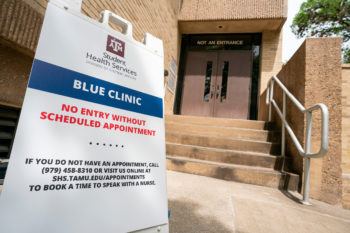
In-Person Precautions
Knowing that the majority of in-person transmission of COVID-19 occurs via respiratory droplets, several changes have been made at the A.P. Beutel Health Center to minimize the chance of exposure.
Skaggs said all students are first screened over the phone and asked if they have a fever or are experiencing a cough, shortness of breath, chest pains or gastrointestinal symptoms. They are then directed to one of two separate entrances to the building: one for respiratory patients, or one for non-respiratory patients.
“If they are positive for any of those symptoms they go to the respiratory side,” Skaggs said. “When they enter, they’re masked immediately and shown to a closed room. The people who interact with them have personal protective equipment on that’s appropriate for the situation.”
Other patients go through a separate entrance, where they’re screened again and have their temperature taken. Once inside the building, there’s no mixing between the different kinds of patients.
Among the Student Health Services employees on the front lines of the campus COVID-19 response is student Taylor Heyburn, an allied health senior set to graduate in less than a month. As door master, it’s Heyburn’s job five days a week to verify patients go to the right clinic entrance and to check them in. She also sanitizes any surfaces a person may have come in contact with between patients.
Heyburn is in the unique position of working in a clinical setting during the pandemic. With hospitals and local clinics looking to minimize exposure, medical and nursing students at Texas A&M and across the country have been pulled out of their clinical rotations.
“It’s been very different, but it’s been a smooth transition,” Heyburn said. “At first I thought I’d be anxious and hesitant about it, but this is the field I’ve chosen, and I felt very called to work here. I’m happy I had the opportunity to be part of it.”
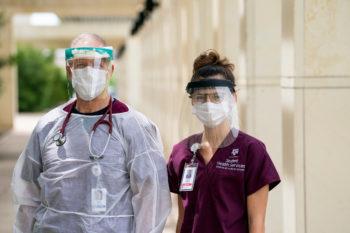
Rising To The Occasion
Skaggs said the medical staff were well prepared for the changes during this unprecedented time.
“We feel like we can match the demand, and we don’t feel overwhelmed at all,” she said. “We’ve been at this for a long time, and we’ve seen some very bad flu seasons and different things come through, so I feel like we have a lot of resilience.”
Gore said staff are always ready to answer the call and rise to the occasion to do what’s best for students and the university, but gives credit to leaders who took quick action to move forward with a response plan.
“Our response on campus has been quick and nimble,” Gore said. “We’ve demonstrated a flexibility and an ability to change rapidly, and that’s what our job is. We never really know what might come in the door on any given day because we have so many students who travel and have different experiences.”
Dannenbaum said Student Health Services has been fortunate in its ability to quickly transition to telemedicine, which is something she said university health care providers across the country have been considering for years. Students have responded positively, she said, and the service will likely be expanded in the future.
Student Health Services has always been open to looking for opportunities to improve its services, she said.
“We are already in that mindset, and we have a bias toward action, so I think it has helped our staff navigate this with a really positive attitude,” Dannenbaum said.
Campus health care leaders encourage students to follow social distancing measures by staying home, and self-isolating if they think they may be sick. Dannenbaum also encourages people who may be anxious to arm themselves with facts from reliable news sources and websites.
“We’re going to continue to be able to serve our students, and that’s the message we want to spread to them and our campus community,” Dannenbaum said. “We are here to serve them, and happily are doing it.”
Media contact: Caitlin Clark, caitlinclark@tamu.edu
